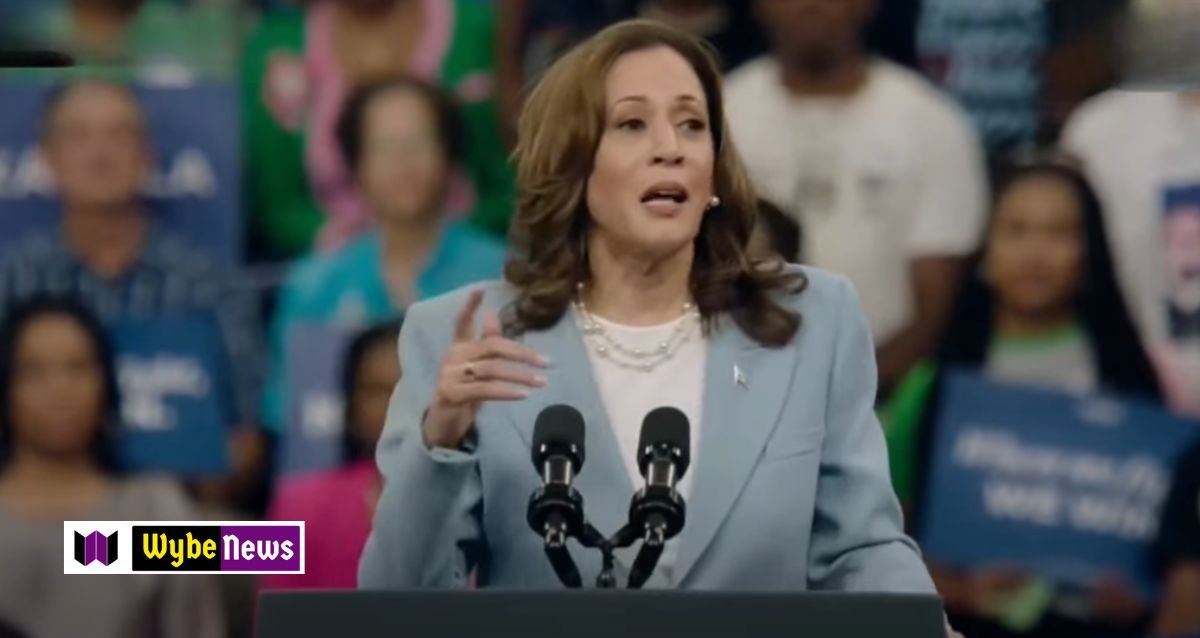Kamala Harris Names Minnesota Governor Tim Walz as Running Mate: Impact on 2024 Presidential Race

The Harris-Walz Ticket
In a pivotal move for the 2024 Presidential race, Kamala Harris has selected Minnesota Governor Tim Walz as her vice-presidential running mate. This decision marks a significant juncture in Harris’s campaign, indicating a strategic emphasis on broadening her appeal to a diverse voter base. Tim Walz, who has a commendable history in winning bipartisan support, brings a wealth of experience and a demonstrated ability to attract Republican voters, an attribute that holds considerable weight in a polarized political landscape.
Walz’s political background is notably robust. Prior to his tenure as Governor of Minnesota, he served as a U.S. Representative, showcasing his adeptness in navigating both state and national politics. His gubernatorial success, particularly his capacity to secure electoral victories in a state marked by political complexity, underscores his electability and potential to galvanize support across the political spectrum. This aspect of Walz’s career is particularly pertinent as Harris’s campaign looks to consolidate a coalition capable of winning critical swing states.
The announcement of the Harris-Walz ticket has prompted a series of polls aimed at gauging public reaction. Early indicators from these surveys reveal a palpable shift in voter sentiment, with a notable uptick in approval ratings for Harris. The data suggests that Walz’s inclusion may serve to mitigate some of the challenges Harris has faced in appealing to moderate and conservative voters. Moreover, Walz’s track record on issues such as education, healthcare, and rural development aligns with Harris’s progressive platform, creating a balanced ticket that promises to address a broader array of voter concerns.
As the campaign progresses, the fusion of Harris’s dynamic political agenda with Walz’s pragmatic approach could prove pivotal. The early polling results, while encouraging, will undergo further scrutiny as the race intensifies. Nevertheless, the Harris-Walz ticket stands as a testament to strategic allyship in the quest for electoral success in the 2024 Presidential election.
Polling Data and Analysis
Recent national head-to-head polls between Kamala Harris and Donald Trump offer substantial insights into the dynamics of the 2024 Presidential Race. Among the myriad of polls conducted, data from SurveyUSA, Morning Consult, YouGov, and the University of Massachusetts Amherst reveal a competitive landscape, with most results falling within the margin of error.
SurveyUSA’s latest poll shows a narrow lead for Harris, with 48% of the vote compared to Trump’s 46%. Morning Consult illustrates a similar scenario, indicating Harris at 47% against Trump’s 45%. YouGov’s figures further echo these trends, presenting Harris at 49% versus Trump’s 47%. Perhaps most notably, the University of Massachusetts Amherst poll underscores a seven-point swing towards the Democrats since January, with Harris now leading Trump by a margin of 50% to 43%.
According to Tatishe Nteta, a political science expert at UMass Amherst, these fluctuations illuminate critical voter sentiment. Nteta highlights that the seven-point swing is particularly significant and suggests a growing discontent with Trump or a consolidation among undecided voters in favor of Harris. “While the margin of error must be considered, the trends indicate potential vulnerabilities in Trump’s campaign strategy and strengths in Harris’s appeal,” Nteta notes.
Such polling data points towards an increasingly volatile and unpredictable electorate as we approach the 2024 election. The consistent narrowing margins underscore the competitive nature of this race, emphasizing that every percentage point could be pivotal. While Harris appears to be gaining momentum, the variability within the polls suggests that her lead remains tenuous. The key to capitalizing on this swing lies in effectively addressing the electorate’s pressing concerns, which will undoubtedly shape the narrative and strategies employed as the campaign progresses.
Harris’s Favorability and Battleground States
Kamala Harris’s favorability ratings have seen a notable increase, attributed to The Hill’s recent analysis. The rise in her approval marks a significant change since mid-July when President Joe Biden announced his decision to step down. This upward trend signifies growing public confidence and approval of Harris, providing her campaign with crucial momentum as the 2024 Presidential Race heats up.
However, the picture in battleground states presents a more nuanced scenario. Polling data indicate varying levels of support for Harris in key states, reflecting the mixed sentiment among voters. In Georgia, Harris holds a slight edge over her competitors, further bolstered by Governor Tim Walz’s appeal in the Midwest. Conversely, recent numbers from Arizona suggest a tighter race, where voter preferences seem more evenly split.
Public Policy Polling offers a deeper dive into these dynamics, showcasing how Harris fares in different battleground states. In Pennsylvania, known for its critical electoral significance, Harris’s favorability has climbed marginally but remains within a competitive margin. Michigan, similarly vital in the electoral map, shows stronger support for Harris, likely influenced by the strategic political moves and endorsements she has garnered.
On the other hand, Trafalgar/Insider Advantage polls provide a contrasting view in Wisconsin. Here, Harris’s ratings have seen a slight dip, indicating potential challenges that her campaign needs to address promptly. The data underscore the importance of tailored campaign strategies to resonate with the diverse voter base in these battleground states.
In conclusion, while Kamala Harris’s overall favorability ratings have improved significantly, the battleground states reveal a more complex and varied landscape. Strategically navigating these pivotal regions will be crucial for her success in the 2024 Presidential Race.
Strategic Implications and Future Projections
The selection of Minnesota Governor Tim Walz as Kamala Harris’s running mate holds several strategic implications for the 2024 presidential race. This decision is poised to diversify Harris’s appeal across various voter demographics, particularly in the Midwest where Walz has demonstrated significant political acumen and popularity. Such a choice can be seen as an effort to consolidate support in crucial swing states, thereby fortifying the Democratic Party’s strategy to retain the White House.
Walz’s extensive experience in governance, coupled with his commitment to progressive policies, could bolster Harris’s platform among moderate and liberal voters alike. His track record on issues such as healthcare, education, and rural economic development adds a layer of depth to the campaign, potentially attracting undecided voters who prioritize these areas. In states that narrowly tilted Republican in previous elections, Walz’s regional influence and appeal to blue-collar workers and rural communities could make a considerable difference.
Current polling data suggests a competitive race, with the Harris-Walz ticket showing strengths in states that are pivotal for securing an electoral college victory. However, this period leading up to the election presents challenges as voter sentiment can be unpredictable. Both candidates must maintain a rigorous campaign schedule to sustain momentum and counteract any emerging controversies or opposition strategies. The emphasis on voter engagement, particularly through grassroots mobilization and digital outreach, will be critical in shaping the final outcome.
Looking ahead, the Harris-Walz partnership must navigate a landscape where voter priorities are evolving rapidly. Key opportunities lie in addressing pressing issues such as economic recovery, climate change, and social justice. Successful alignment with voter concerns could leverage their campaign’s potential, turning existing support into electoral gains. The significance of sustained voter engagement efforts can’t be overstated, emphasizing personal connection and trust in a candidacy designed to resonate across the American electorate.






